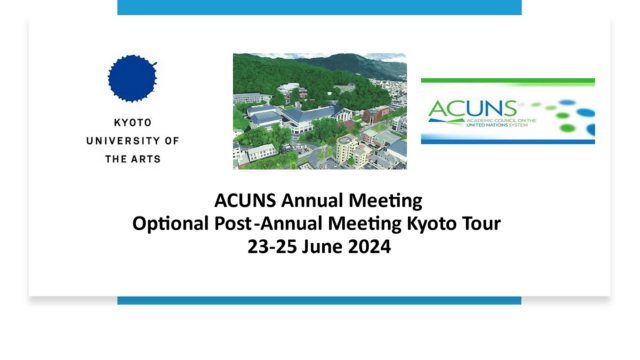In partnership with the Kyoto University of the Arts, the ACUNS Tokyo Liaison Office invites participants to a 3-day, 2-night optional tour to Kyoto, following the ACUNS Annual Meeting 2024. You can see details from here.

Announcement for ACUNS Annual Meeting 2024 (18/3/2024)
REGISTRATION IS NOW OPEN UNTIL WEDNESDAY, 10 APRIL 2024.
You can see details from here.
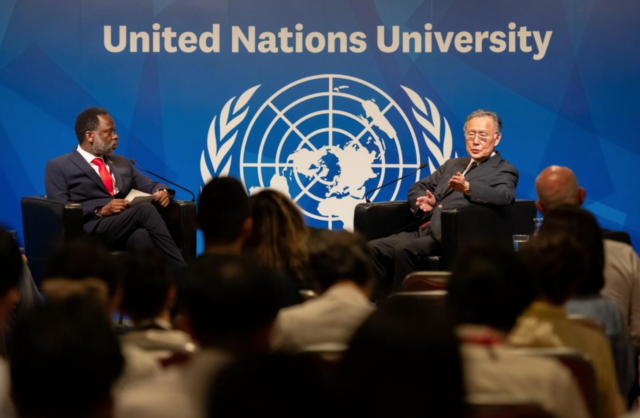
Sukehiro Hasegawa, special professor at Kyoto University of Art, talks about “The Difficulties of Establishing Free and Fair Elections” (13/3/2024)
It’s human nature we need to address and control to prevent conflict and war, says Hasegawa in his conversation with Rector Marwala of the UN University held on 31 August 2023. Personal desire and lust for power and wealth are the root causes of conflict that must be controlled. Please click here for video recording. (13/3/2024)
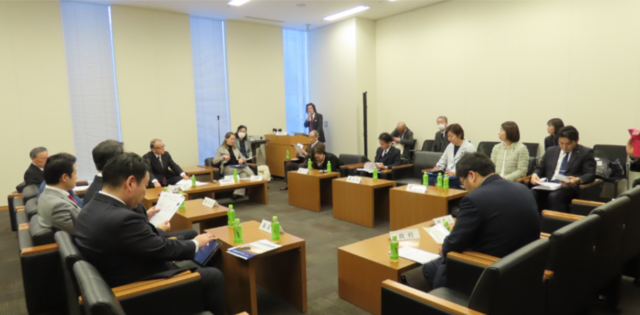
International Organization for Migration (IOM) Director General Amy E. Pope met with Japanese parliamentarians. (27/2/2024)
Amy E. Pope, Director General of the International Organization for Migration (IOM), explained IOM’s latest activities at a discussion meeting with members of the National Diet of Japan from both the ruling and opposition political parties, organized by the Japanese Parliamentary Committee for World Federation. The participating Diet members asked for an explanation of the differences between the roles of IOM and UNHCR. They also pointed out the challenges in accepting more foreigners in Japan. For more information on what was discussed at this meeting, please click here. (27/2/2024)
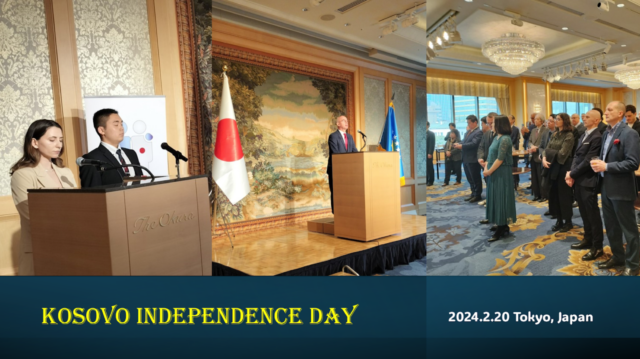
The Embassy of Kosovo hosted a ceremony to celebrate 16 years of Kosovo independence and 15 years of diplomatic relations between the Republic of Kosovo and Japan. (20/2/2024)
Dr. Arbenita Sopaj, a member of the Board of Directors of the Global Peacebuilding Association of Japan (GPAJ) the Special Assistant to the Ambassador of Kosovo and Mr. Keitoku Ikegami, a member of the GPAJ, acted as Masters of the Ceremony of the Independence Day and 15 th year of Diplomatic Relations Kosovo- Japan celebration hosted by the Embassy of Kosovo in Japan. Ambassador Dr. Sabri Kiçmari of the Republic of Kosovo spoke to the diplomats and officials of the Japanese government who participated in the Independence Day reception held at Hotel Okura in Tokyo on February 20, 2024. (20/2/2024)
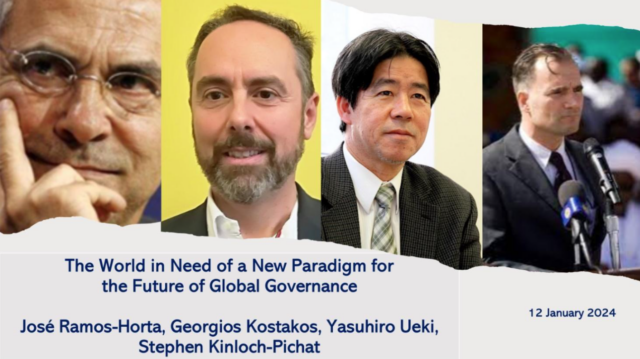
Discussion online on January 12, 2024 about a world in need of a new paradigm for the future of global governance (5/2/2024)
Georgios Kostakos, Yasuhiro Ueki, and Stephen Kinloch-Pichat joined President José Ramos-Horta of Timor-Leste in discussing the world in need of a new paradigm for the future of global governance. Please click here for the full report of the online meeting held on 12 January 2024. (5/2/2024)
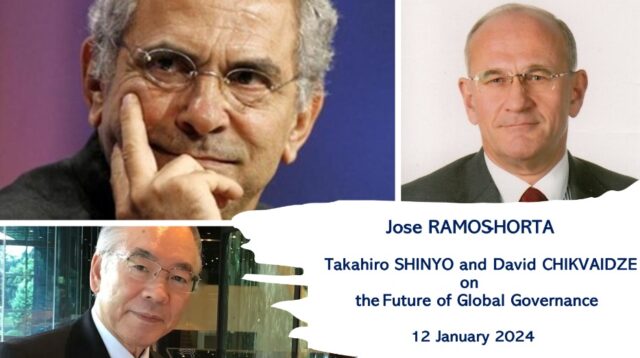
President José Ramos-Horta stated the Security Council should be expanded including the numbers of both permanent and non-permanent members. (01/02/2024)
In an online discussion meeting organized by the Kyoto Peacebuilding Center and supported by the Peacebuilding Association of Japan and ACUNS Tokyo Office held on 12 January, President José Ramos-Horta called for reforming the Security Council to meet the traditional and new challenges posed to Humanity, particularly by Artificial Intelligence by expanding the numbers of permanent and non-permanent members to overcome the legacy of the Cold War. Ambassador Shinyo found it necessary to abolish the permanent membership in the long run and create a new forum for cooperation not only between the Great Powers but also between the so-called global or middle-power countries and the Global South. Mr. Chikvaidze suggested a major restructuring to include G20 members and the African Union in the UN Security Council. Please see the details of their views by clicking here.
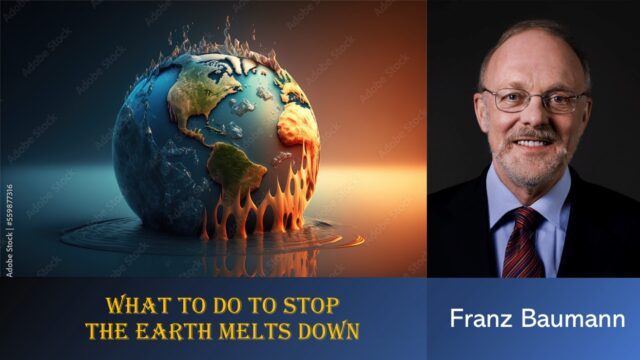
Franz Baumann “What to do to Stop the Earth Melts Down” (06/01/2024)
Franz Baumann, the new ACUNS President, suggests that while the climate crisis is, in fact, a fossil fuel crisis, the old mantra that mitigating global heating can be achieved without cost, inconvenience, or change is fading. Whatever Big Oil’s rearguard actions, the open question is: Before the climate tips, will whatever is politically possible prove to be ecologically sufficient, or will the ecologically necessary miraculously become politically possible? The answer is if only that plan from Rio would be resuscitated. Please click here for his full article.
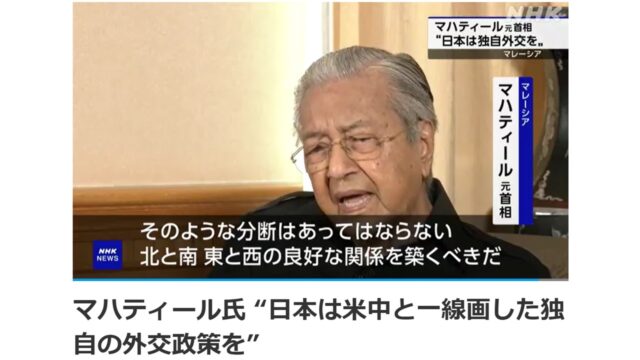
Former Malaysian Prime Minister Mahathir: “Japan should develop its own unique diplomacy based on its own vision.” (NHK WORLD-JAPAN)
Former Malaysian Prime Minister Mahathir Mahathir, who visited Japan to attend the Japan-Asian Summit, gave an interview to NHK on December 15, and stated that while Southeast Asia has become a site of intense conflict between the United States and China, Japan has set itself apart from both countries. He urged that Japan should develop its own unique diplomacy based on its own vision. See his interview with NHK.
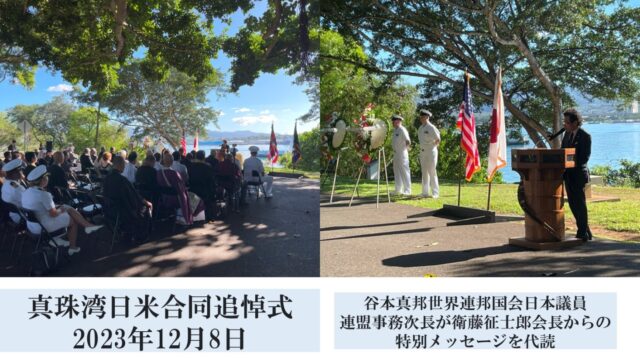
Pearl Harbor Joint Japan-US Memorial Ceremony (09/12/2023)
Mr. TANIMOTO Masakuni delivered a special message from Mr. ETO Seishiro, Chairman of the Parliamentary Committee of the National Diet of Japan, at the Joint Japan-US Memorial Ceremony at Pearl Harbor on December 8, 2023. Please click here for details.

